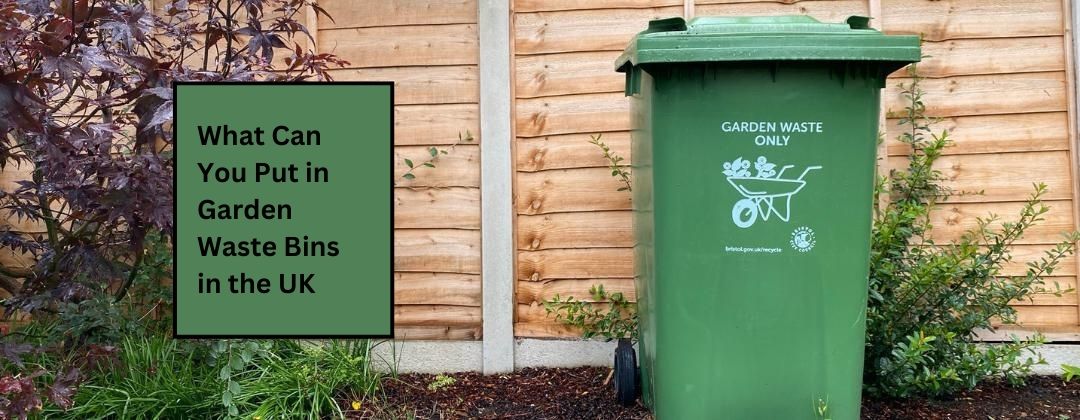Garden waste bins are important for keeping your garden tidy. But, do you know what you can put in them? In the UK, there are rules about what goes into garden waste bins. This helps in recycling and composting. Let’s learn more about what you can put in your garden waste bin.
What is Garden Waste?
Garden waste is anything that comes from your garden. It includes plants, grass, and leaves. It is natural and can break down easily. This makes it good for composting.
Types Of Garden Waste
- Grass Clippings
- Leaves
- Weeds
- Plant Trimmings
- Flowers
- Small Branches
What Can You Put in Garden Waste Bins in the UK?
Not everything from your garden should go into the garden waste bin. Below is a list of what you can put in the bin.
Grass Clippings
Grass clippings are perfect for the garden waste bin. They break down quickly and turn into compost.
Leaves
Fallen leaves are also great for the garden waste bin. They decompose and make rich compost.
Weeds
You can put weeds in the garden waste bin. But, make sure they do not have seeds. Seeds can spread and create new weeds.
Plant Trimmings
Cuttings from plants can go into the garden waste bin. This includes stems, flowers, and leaves.
Flowers
Old and dead flowers are also good for the garden waste bin. They break down and enrich the soil.
Small Branches
Small branches and twigs can be put in the garden waste bin. They should be no thicker than your thumb.
What Should Not Go in Garden Waste Bins in the UK?
Some items should not go into garden waste bins. These items can cause problems. Here is a list of what to avoid.
Plastic Bags
Plastic bags do not break down. They are bad for the environment. Do not put them in the garden waste bin.
Animal Waste
Animal waste can carry diseases. It should not go into the garden waste bin.
Food Waste
Food waste attracts pests. It is better to put food waste in a compost bin.
Large Branches
Large branches take a long time to break down. They should be cut into smaller pieces first.
Soil And Stones
Soil and stones are heavy. They can make the bin too heavy to lift.
How to Use Your Garden Waste Bin
Using your garden waste bin is easy. Follow these steps to make sure you are doing it right.
Step 1: Collect Your Garden Waste
First, collect all the garden waste. Make sure it is on the approved list.
Step 2: Prepare The Waste
Next, prepare the waste. Cut large branches into small pieces. Remove any non-organic materials.
Step 3: Put The Waste In The Bin
Put the prepared waste into the garden waste bin. Do not overfill it.
Step 4: Close The Lid
Always close the lid. This keeps pests and rain out.
Step 5: Put The Bin Out For Collection
Put the bin out on your collection day. Check your local council for the schedule.
Benefits of Using Garden Waste Bins
Using garden waste bins has many benefits. It helps the environment and keeps your garden tidy.
Recycling
Garden waste bins help in recycling. The waste is turned into compost. This compost is used in parks and gardens.
Reduces Landfill
Using garden waste bins reduces landfills. Less waste goes to the landfill, which is good for the Earth.
Healthy Gardens
Compost from garden waste helps gardens grow. It makes the soil rich and healthy.
Frequently Asked Questions
What Can Go In Garden Waste Bins?
You can put grass cuttings, leaves, branches, and weeds in garden waste bins.
Can You Put Soil In Garden Waste Bins?
No, soil is not allowed in garden waste bins. Dispose of soil separately.
Are Food Scraps Allowed In Garden Bins?
No, food scraps should go in your compost bin or food waste bin.
Conclusion
Knowing what you can put in garden waste bins is important. Follow the rules to help the environment. Use your garden waste bin correctly. This keeps your garden tidy and helps recycle waste.
For more information, check with your local council. They have specific guidelines for garden waste disposal.
Start using your garden waste bin today. Help make a greener and cleaner environment.


